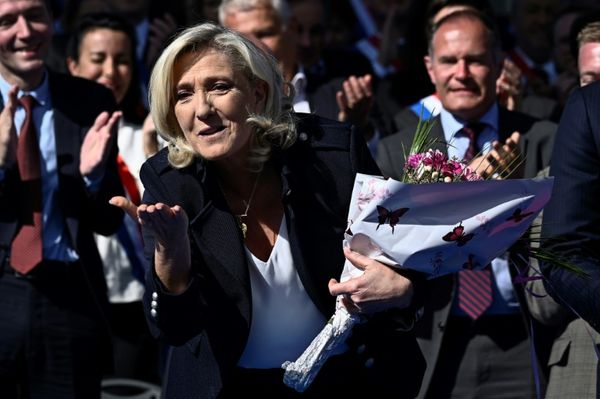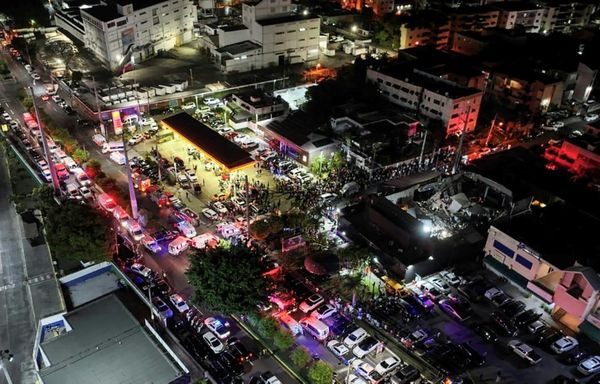Football, now a multi-billion-dollar industry with new Arab billionaire owners, has changed tremendously as a result of Gulf investments. Transfers, sponsorships, as well as stadiums and club management, have regained a whole new meaning. Qatar fully financed Lionel Messi’s transfer to PSG, while Saudi Arabia paid for Cristiano Ronaldo's Middle Eastern journey. These investments are revolutionary, but how exactly did the Middle East transform the game of football? Let’s find out!
Arab Billionaires Reshaping Football
Ten years ago, family-owned clubs, American franchises, and oligarchs dominated European football. Today, however, it is the Gulf states that have taken control by investing over $30 billion into transforming the sport on every level. And following the results of these transformations is easy—just تحميل MelBet للاندرويد and you can immerse yourself in the world of sports and predicting results. With this application, you will not miss a single football match involving clubs financed by Arab billionaires.
But it is not only about buying clubs. Rather, the UAE, Qatar, and Saudi Arabia are redefining the operations of the sport. Sheikh Mansour’s spending surge, which turned Manchester City into a powerhouse, started after he bought the club in 2008. Then came Qatar Sports Investments (QSI), which transformed PSG into a global phenomenon, followed by Saudi Arabia’s PIF, which is in the process of doing the same with Newcastle United. It’s evident that these billionaires are serious about the game’s tomorrow.
Top Teams Under Gulf Ownership
The purchase of clubs by Gulf owners has totally shifted the dynamics of European football. Their formula for success always includes the following:
- Without Limits Budget Spending: The club would be under the ownership of an Arab billionaire. They don’t simply spend money—they also go for the best players and managers to ensure a good ROI.
- World-Class Level Upgrade: Gulf owners spend on club facilities like training rooms, stadiums, and even academies, transforming them into world-class infrastructural real estate.
- Brand Recognition: These clubs enjoy great spending power. This allows them to venture into sponsorships that can reach almost every corner of the globe.
- Transfer Market Domination: With what seems to be endless resources at their disposal, they manage to break record after record by making the biggest signings in sports with expert spending.
This approach has led to the success and domination of clubs like Manchester City, PSG, and Newcastle over Europe. And with Saudi clubs now on the scene, it’s only getting more intense.
Massive Club Investments
It isn’t just about purchasing the clubs for Arab investors—it is the entire restructuring that takes place after. Just look at the reports:
After Sheikh Mansour purchased Manchester City Football Club, they have spent more than €2 billion on players and other essentials like a new training complex. This brought the club multiple Premiership wins. Qatar’s PSG investment has already broken the €1.5 billion mark and is now a Champions League-winning team. Saudi Arabia’s Public Investment Fund has started investing hundreds of millions into Newcastle United for the same reason: to make them a winning team.
Some of the most powerful clubs in the world have been able to reap the benefits of transforming their facilities, which now include the best equipment available, elite trainers, and a new level of football development unlike anything seen before. Ownership models have changed dramatically for clubs, as fathers with billions from the Middle East are taking charge.
Biggest Transfers Backed by Oil Money
Gulf riches have financed some of the most astonishing transfers in football history. Here are a few of the most notable transfers that were financed by Middle Eastern owners:
|
Player |
Transfer Fee |
Destination Club |
Arab Investor |
Year |
|
Neymar |
€222M |
PSG |
Qatar Sports Investments (QSI) |
2017 |
|
Kylian Mbappé |
€180M |
PSG |
Qatar Sports Investments (QSI) |
2018 |
|
Cristiano Ronaldo |
€200M+ per year |
Al-Nassr |
Saudi PIF |
2023 |
|
Erling Haaland |
€60M (bargain deal) |
Man City |
Sheikh Mansour (UAE) |
2022 |
|
Karim Benzema |
€200M per year |
Al-Ittihad |
Saudi PIF |
2023 |
Not only do these players change clubs, but they also alter the dynamics of global football power. Neymar's signing with PSG in 2017 turned the transfer market upside down, and the arrivals of Ronaldo and Benzema to Saudi clubs marked the beginning of a new age.
Middle Eastern Influence in UEFA
From the top tiers of European football’s administration right the way down to local clubs, they all have one thing in common: they now have guaranteed financial support from the Middle East.
Etihad, Qatar Airways, and Emirates, Gulf-backed companies, provide sponsorships for UEFA competitions, including the Champions League. Furthermore, the sponsorship spending power from Gulf-owned clubs has led to some UEFA restructuring of the Financial Fair Play regulations to accommodate their astronomical spending.
After hosting the FIFA World Cup in 2022, Qatar now has competition as Saudi Arabia looks to bid for the construction of the stadiums required to host the tournament in 2034. Be it club football, international competitions, or just simple sponsorship, the Middle East reigns supreme.
Rise of Saudi & Qatari Leagues
For many years, the top talents around the world could only fantasize about playing in Europe. Now? They are heading to the Middle East.
The Saudi Pro League has spent over one billion euros in the past two years signing players like Cristiano Ronaldo, Karim Benzema, N’Golo Kanté, and Neymar. After hosting the FIFA World Cup in 2022, the Qatar Stars League is also heavily investing in infrastructure, marketing, and player signings.
What’s next? Even bigger-name signings, increased pay, and international attention. The Saudi and Qatari leagues are not looking to become retirement leagues but serious rivals to Europe’s top competitions.
New Football Mega Projects
Arab billionaires are not only buying players but are also planning for the future of football. The Middle East is investing billions in the infrastructure, media, and global branding of football. Here are some of the largest mega projects in football:
|
Project Name |
Location |
Investment |
Completion Year |
Purpose |
|
Qiddiya Stadium |
Saudi Arabia |
$1B+ |
2026 |
Future home of Saudi football |
|
Aspire Academy Expansion |
Qatar |
$500M |
2025 |
Training young talent |
|
Riyadh Football City |
Saudi Arabia |
$2B |
2030 |
New football district |
|
Dubai Football Hub |
UAE |
$600M |
2027 |
Global training center |
|
Middle East Super League |
Gulf Region |
TBD |
TBD |
Ambitious new club competition |
These investments make one thing clear: it’s not just for the sake of spending—they are building a football empire.
Arab Sponsorships in European Clubs
Even clubs not controlled by Gulf investors are sustained by Middle Eastern sponsorships. Here’s how:
- Jersey Deals: Real Madrid, Arsenal, and AC Milan have corporate sponsors from the Middle East.
- Stadium Naming Rights: Some of Europe’s biggest stadiums have already been claimed by Etihad, Emirates, and Qatar Airways for naming rights.
- Exclusive TV Broadcasting: Global broadcasting rights for football are monopolized by BeIN Sports and Saudi-owned networks.
- Luxury Hospitality and Fan Engagement: Gulf countries fund VIP stadium access, global fan centers, and digital interfaces.
The Middle East’s powerful regions can be found everywhere, guaranteeing that even clubs outside their ownership sphere still rely on Gulf funding.
The Future of Football Under Arab Investors
What is the underlying goal? Greater movements. Greater investment. Greater control. Gulf states are now transforming football according to their design, elevating clubs as international icons and positioning both Saudi Arabia and Qatar as emerging superpowers.
This isn’t a short-term assumption—it’s the future of football. The cash flow, the focus, the willpower—it’s all here to stay. There is no longer a question of when Arab multimillionaires will control football; the bigger question is who they will buy next.









